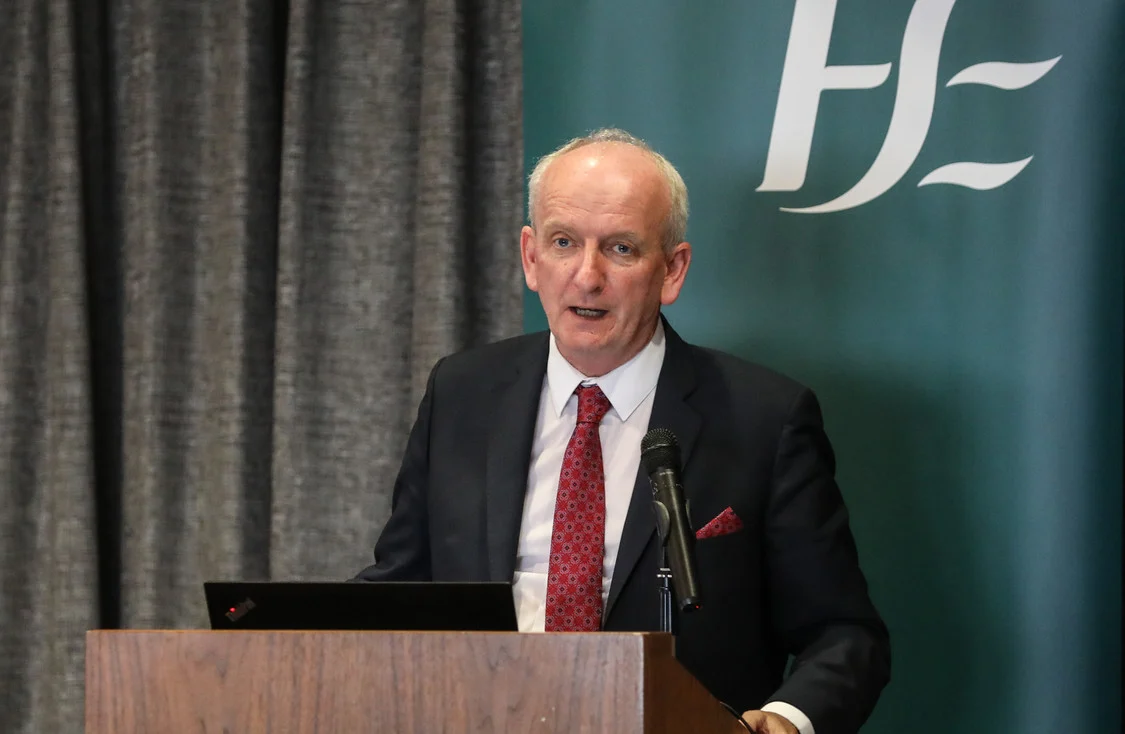A recruitment freeze at the Health Service Executive is to end tomorrow, according to CEO Bernard Gloster.
The recruitment freeze was introduced by the HSE in October last year. It was extended in November to include all categories of staff, with the exception of consultants, doctors in training and 2023 graduate nurses and midwives.
Bernard Gloster, the former Chief Executive of Tusla, has been appointed as the new CEO of the Health Service Executive (HSE). His appointment follows an open selection process and he is expected to bring his extensive experience in health services to the role. Gloster has over 30 years of experience in the health sector, having held several senior management positions, including Chief Officer of HSE Mid West Community Healthcare.
Gloster’s appointment comes at a crucial time for the HSE, which has been navigating significant challenges and changes. The HSE Board Chairperson, Ciarán Devane, expressed confidence in Gloster’s ability to lead the organization through this period of transformation. Devane highlighted Gloster’s track record and commitment to public service as invaluable assets for the HSE.
In his new role, Gloster will be responsible for overseeing the HSE’s operations and implementing health reforms aimed at improving service delivery and patient care. He has expressed his commitment to working with the HSE Board, colleagues, and partners across the health system to drive continuous improvement in how people access and experience health services.
One of the immediate challenges Gloster faces is addressing the HSE’s recruitment issues. The HSE had implemented a recruitment freeze in October last year, which was later extended to include all categories of staff except consultants, doctors in training, and 2023 graduate nurses and midwives. This freeze was introduced due to budget constraints and the need to manage the health service’s finances more effectively.
However, Gloster recently announced that the recruitment freeze will end tomorrow. This decision follows the government’s allocation of an additional €1.5 billion to the HSE to address its financial shortfall for this year. An extra €1.2 billion will also be provided next year to support existing service levels.
Gloster explained that the additional funding will help secure 4,000 previously unfunded posts, ensuring that the HSE can maintain and expand its workforce. Despite the recruitment freeze, the HSE managed to recruit more staff than those who left the service, demonstrating the organization’s resilience and commitment to meeting healthcare demands.
The end of the recruitment freeze is expected to have a positive impact on the HSE’s ability to deliver quality healthcare services. Gloster emphasized the importance of establishing a control environment to manage the additional funding effectively and ensure that the HSE operates within its budget. He also highlighted the need to reduce the dependency on agency staff, which has been a significant cost for the HSE in recent years.
As Gloster takes on his new role, the focus will be on driving health reforms, improving service delivery, and ensuring that the HSE can meet the healthcare needs of the population. His extensive experience and commitment to public service are expected to play a crucial role in navigating the challenges ahead and achieving the HSE’s goals.
